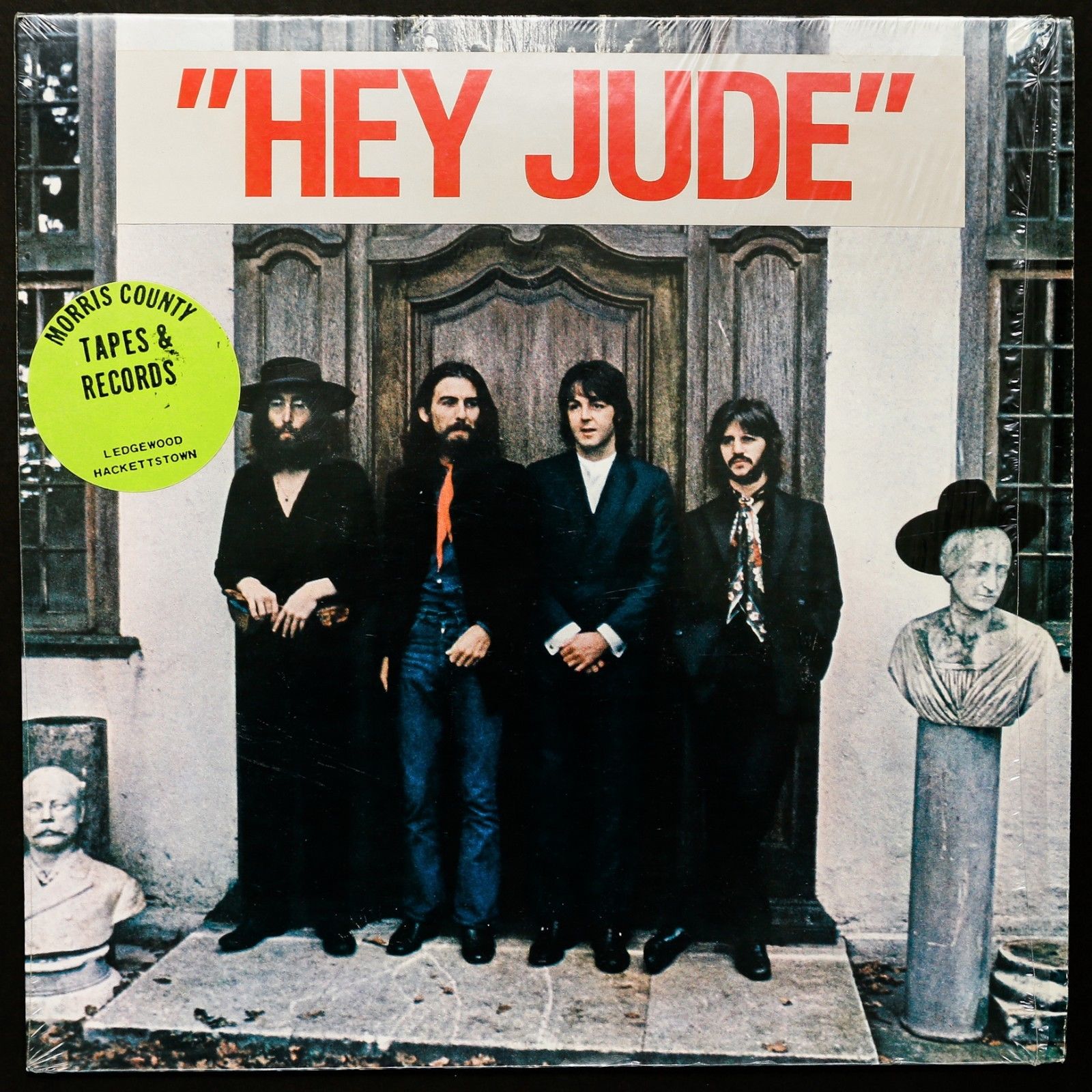
Main Writer: McCartney
Recorded: July 29-August 1, 1968
Released: August 26, 1968
19 weeks; no. 1
“Hey Jude” was inspired by John and Cynthia Lennon’s five-year-old son, Julian. “Paul and I used to hang out quite a bit — more than Dad and I did,” Julian said. “Maybe Paul was into kids a bit more at the time.”
McCartney was visiting Cynthia after she and Lennon had broken up, and he was thinking of Julian on the drive over there. “I was going out in my car, just vaguely singing this song,” McCartney said, “and it was like, ‘Hey, Jules. . . .’ And then I just thought a better name was Jude. A bit more country & western for me.” The opening lines were “a hopeful message for Julian: ‘Come on, man, your parents got divorced. I know you’re not happy, but you’ll be OK.’”
“Hey Jude” can also be heard as McCartney’s song of consolation to himself as his relationship with Jane Asher was ending and as the Beatles’ future was growing more uncertain. The song was recorded in the middle of the White Album sessions, which were plagued by fighting within the band and increasing alienation as the individual songwriters started treating the other Beatles as sidemen on their songs — if they used them at all. McCartney, George Harrison and Ringo Starr resented the constant presence of John’s new girlfriend, Yoko Ono, in the studio. Engineer Geoff Emerick found the squabbling so unpleasant that he quit. George Martin, also exhausted from the bickering and from running between the individual Beatles recording simultaneously in separate studios, abandoned the sessions to take a vacation, leaving production of the album for several weeks to his assistant Chris Thomas. Fed up himself, Starr left the band for two weeks (the first band member to quit the Beatles).
When Lennon first heard “Hey Jude,” he loved it — he thought McCartney was singing to him, about his relationship with Ono and the strains on the Lennon-McCartney partnership. (Lennon’s contribution to the song came when McCartney pointed out a place-holder line in the fifth verse: “The movement you need is on your shoulder.” Lennon insisted he leave it as is. “That’s the best line in it!” he said.) Calling “Hey Jude” one of McCartney’s “masterpieces,” Lennon said in 1980, “I always heard it as a song to me. . . . Yoko’s just come into the picture. He’s saying, ‘Hey, Jude — hey, John.’ Subconsciously he was saying, ‘Go ahead, leave me.’”
The band hired a 36-piece orchestra for the session; the classical musicians were encouraged to sing and clap along to the song, for double their usual rate. One musician would not go along. “‘I’m not going to clap my hands and sing Paul McCartney’s bloody song,’” Martin remembered him saying. “He said his union card said he was a violinist, and he walked out of the studio. Much to everyone’s amazement.” There were other problems too: McCartney had to tell Harrison to tone down his guitar-playing, which was cluttering up the verses. (Harrison “wasn’t into what I was saying,” said McCartney. “It was bossy, but it was also ballsy of me, because I could have bowed to the pressure.”) And when it came time to record the master take, McCartney hadn’t noticed that Starr was in the bathroom. Fortunately, the drums come in so late in “Hey Jude” that Starr was able to sprint back behind his kit and come in right on time.
The ending refrain goes on for a full four minutes, even longer than the verses, which clock in at just over three minutes. The band hadn’t planned it that way, but McCartney was having too much fun ad-libbing to quit. “I just wouldn’t stop doing all that ‘Judy Judy Judy — wooow!” he said. “Cary Grant on heat!”
“Hey Jude” was the first release on the group’s Apple Records label. It spent nine weeks at Number One, holding the top spot longer than any other Beatles song. It was also the longest Beatles song up to that point, clocking in at seven minutes and 11 seconds. Martin objected to its length, claiming radio wouldn’t play the tune. “They will if it’s us,” Lennon shot back.
Appears On: Past Masters
